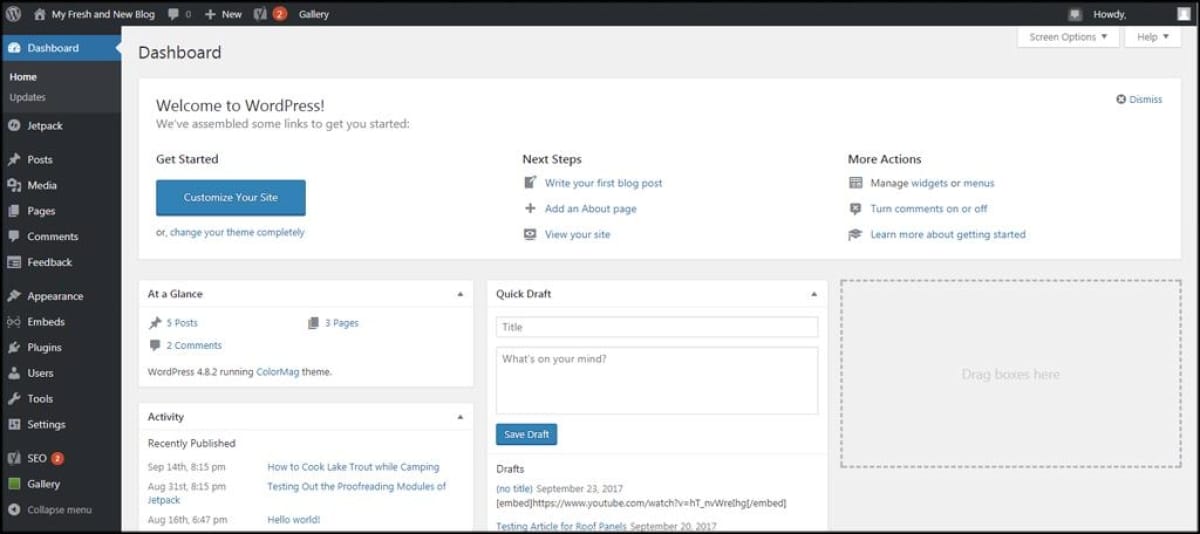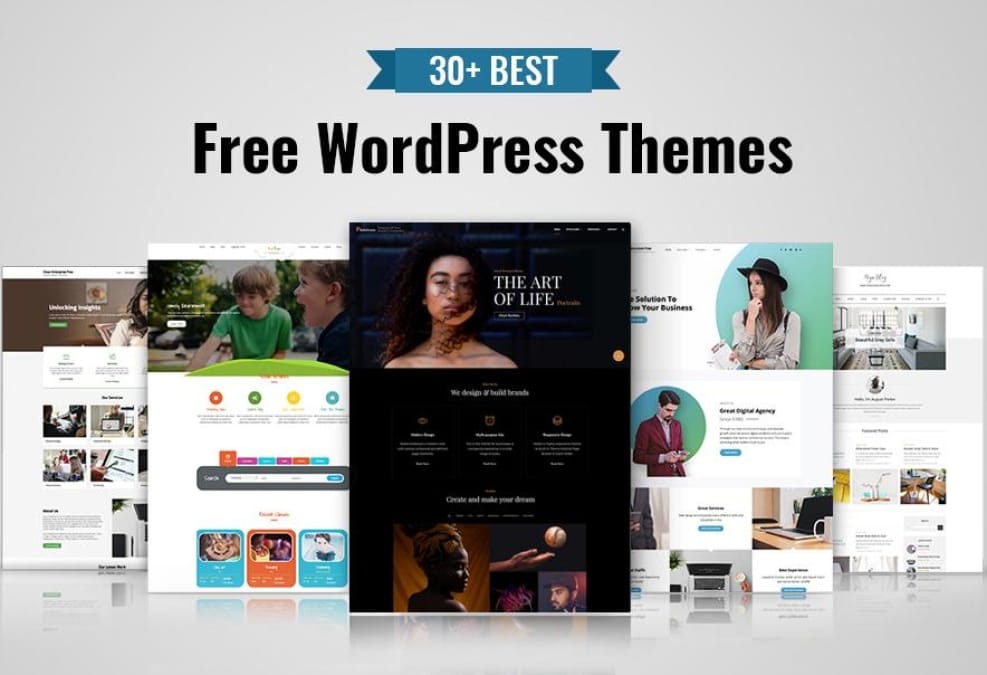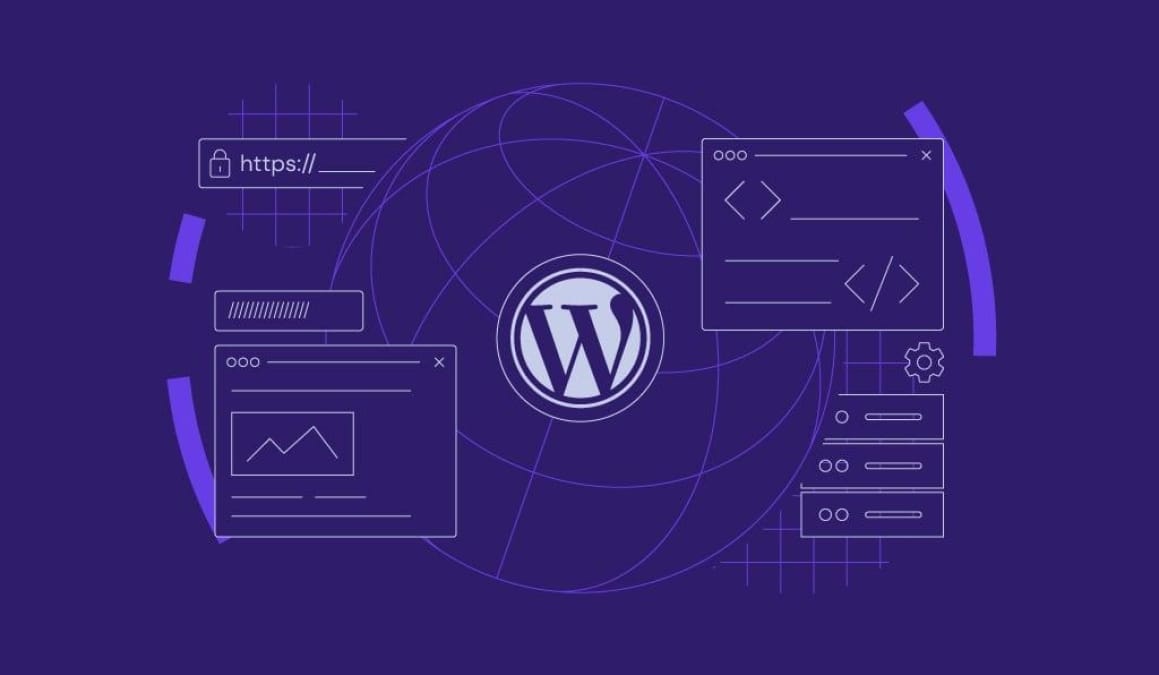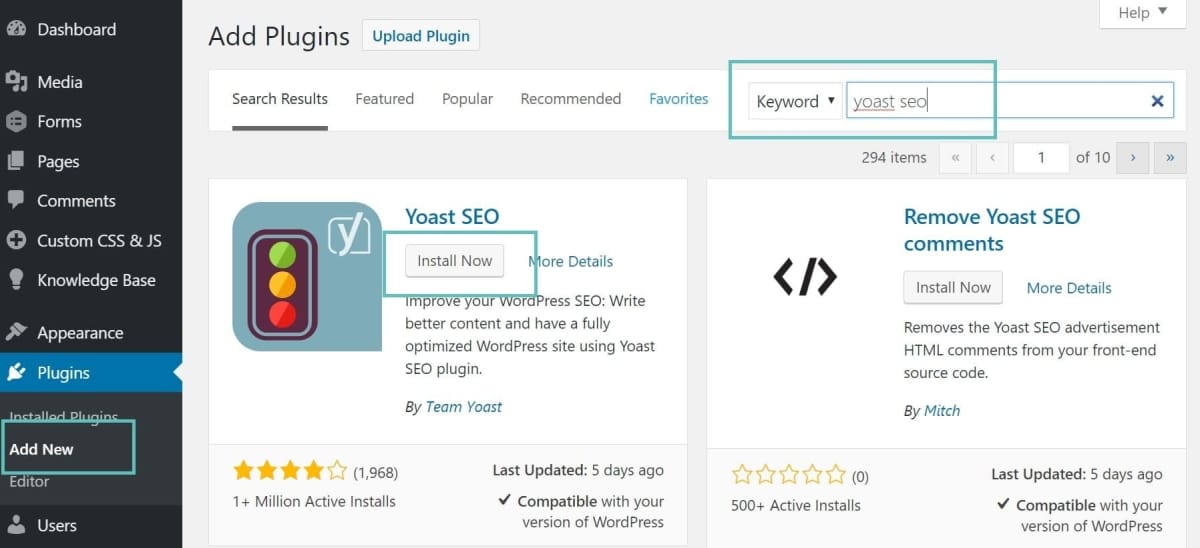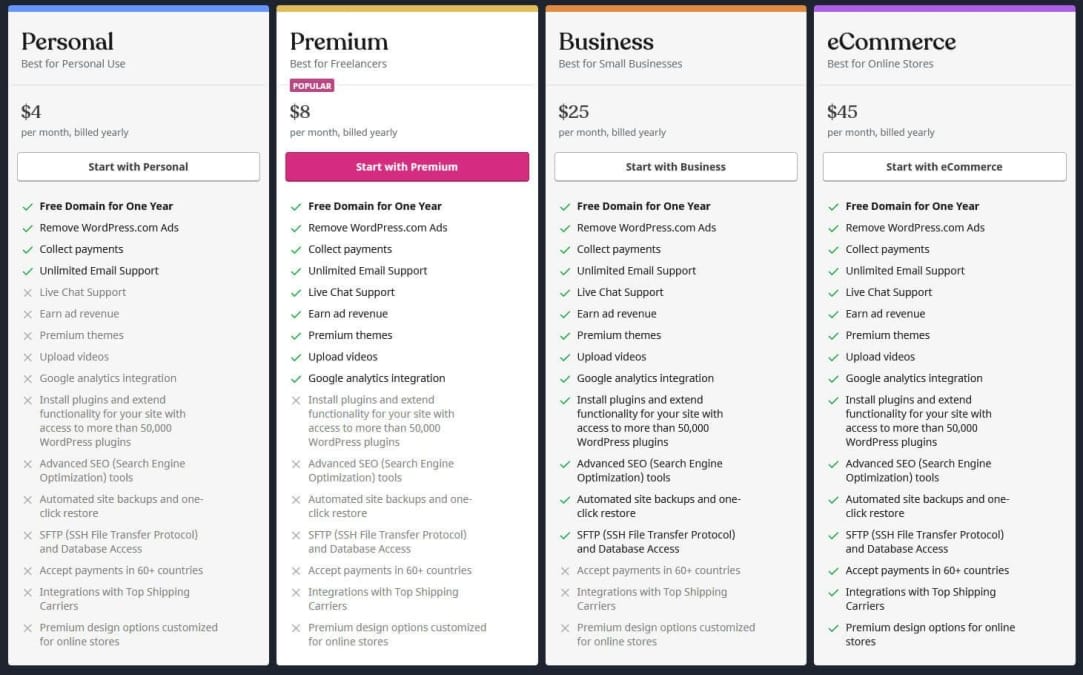Thinking about diving into WordPress? You’re not alone! With millions of websites running on this popular platform, it’s hard to ignore the buzz around it. Whether you’re a small business owner, a budding blogger, or just someone curious about building your online presence, you might be wondering: is it really worth your time to learn WordPress? In this article, we’ll break down what you need to know before jumping in. From the basics to the benefits and challenges, we’ll help you decide if this is the right step for you. So, let’s get into it!
Table of Contents
- Is WordPress the Right Fit for Your Goals
- understanding the Learning Curve of WordPress
- Real-Life Benefits of Mastering WordPress
- Choosing the Best resources for Your Journey
- Making Money with Your WordPress Skills
- Q&A
- The Way Forward

Is WordPress the Right fit for Your goals
Deciding if WordPress is the right platform for you boils down to what you want to achieve. If you’re looking to start a blog,showcase a portfolio,or create a small online store,WordPress could be a solid choice. It’s user-friendly, which is a big plus if you’re just dipping your toes into the website creation world. Plus, with countless themes and plugins, you can easily tweak things to fit your style without needing to know all the nitty-gritty code stuff.
One of the key benefits of using WordPress is its flexibility.It can grow with you as your goals change. Whether you’re a hobbyist today and want to turn your passion into a full-blown business tomorrow, WordPress has the tools to support that. Some things to keep in mind include:
- Customization: With a wide range of themes and plugins, you can really make your site reflect your personality.
- Community Support: there’s a huge community out there, so if you hit a snag, chances are someone else has too.
- SEO Friendly: If getting found on search engines is crucial to you, WordPress has built-in tools and plugins that can help.
However, if you’re aiming for something more complex like a large-scale eCommerce site or a membership platform, you might face a steeper learning curve. WordPress can handle these things, but you might have to put in some effort to get everything set up just right. You’ll want to think about:
| Goal | Fit for WordPress? |
|---|---|
| Personal Blog | 👍 Great Fit |
| Portfolio | 👍 Awesome |
| Online Store | 👍 Possible, but learn more |
| Large eCommerce Site | 👎 consider alternatives |
In short, your goals should guide your choice. If you’re just starting and want something that’s easy to manage, wordpress might be your best buddy. But if you’re looking for something super customizable at a larger scale, you might want to explore other platforms. Take a moment to lay out what you really need and evaluate if WordPress can meet those needs efficiently.

Understanding the Learning Curve of WordPress
When you first dive into WordPress, it can feel a bit overwhelming, especially if you’re new to web design or coding. But don’t sweat it; everyone starts somewhere. The great thing about WordPress is that it’s designed to be user-friendly, even for total beginners.You’ll quickly find that the interface is pretty straightforward once you get a hang of the basics. It’s like learning to ride a bike—at first, it might feel a little wobbly, but soon enough, you’ll be cruising along.
Here are some core things you might want to get comfortable with as you get going:
- The Dashboard: This is like your control center. You’ll use it to manage everything from posts to plugins.
- The Editor: Get familiar with the block editor, which makes creating content as simple as dragging and dropping.
- Plugins: These are little add-ons that can enhance your site’s functionality,from SEO to contact forms.
Apart from these basics, it’s also important to understand that there’s a bit of a learning curve with themes and customization. At first, you might struggle to find that perfect look for your site. It’s kind of like trying on clothes—some styles will fit better than others. But as you play around with different themes and settings, you’ll start to see how everything fits together. And once you nail down the design, the rest will flow much more naturally.
To give you an idea of how the learning process builds up over time,here’s a quick table showing some common stages along the journey:
| Stage | Description |
|---|---|
| getting Started | Familiarizing yourself with the dashboard and setting up your first site. |
| Content Creation | Learning how to create and manage posts and pages. |
| Customization | Experimenting with themes and design options to personalize your site. |
| Advanced Features | Integrating plugins and exploring SEO basics to improve your site. |

Real-Life Benefits of Mastering WordPress
Getting a grip on WordPress can really change the game for you, whether you’re running a small business or just starting a blog. first off, it’s all about flexibility.With WordPress, you can create pretty much any type of website you want, from a simple personal blog to a complex online store. This means you can tailor your site exactly to what you need without having to rely too much on tech skills. And that’s a huge plus for people who want to focus on their core business rather of fumbling with code.
Another neat perk is the community support.There’s a massive group of WordPress users out there who are more than willing to share tips and tricks. If you ever run into a snag, you’ll probably find someone who’s been in the same boat and has figured it out already. This means you won’t feel like you’re alone on an island, trying to navigate all the challenges that come with building and maintaining a site.The forums,blogs,and YouTube tutorials are loaded with info that can help you get unstuck in no time.
On top of that, mastering WordPress can give you a competitive edge. Employers and clients love it when you can whip up a site yourself. It shows initiative and can save them money. If you’re freelancing, it’s a skill that can set you apart from others who might not have that website know-how yet. For manny, having the ability to customize and maintain their site directly translates to more control and better outcomes.
there’s a ton of plugins and themes that can amp up your site without breaking the bank. Whether you’re looking for sleek designs or specific features like SEO tools, event calendars, or social media integration, there’s something for everyone. With some basic knowledge, you can mix and match to create the site you always wanted. This means you’re not stuck with whatever platform you first picked; you can evolve your site as your needs change.

Choosing the Best Resources for Your Journey
When it comes to learning WordPress, figuring out which resources will actually help you can feel like searching for a needle in a haystack. There’s a ton of info out there, and it can get overwhelming fast. Start with some free online tutorials; they’re great for getting your feet wet without breaking the bank. YouTube is full of step-by-step guides, making it easy to follow along with someone who knows the ropes. Just be sure to check the video’s date—older content might not reflect the latest updates.
Another route to consider is premium courses. These usually cost a bit, but they often provide a more structured learning path. Platforms like udemy or Coursera have courses tailored to beginners,and they often come with good reviews. Look for courses that include practical exercises and quizzes; that way, you can keep track of what you’ve learned and where you might need more practice.
Don’t forget about community forums and groups. Places like WordPress support forums, Reddit, and Facebook groups can be gold mines for help and advice. You’ll find folks at all skill levels there, and they’re usually more than happy to share tips and tricks. Plus, getting involved in the community can keep you motivated. Just remember, it’s okay to ask questions—everyone was a rookie at some point.
If you’re more of a visual learner,consider picking up a few eBooks or guides on WordPress.There are plenty of affordable options, and they often break down complex topics in simple terms. Look for ones that offer practical examples or case studies.Here’s a quick glance at some popular options you might come across:
| Resource | Type | Price |
|---|---|---|
| WP 101 | Video Course | $19/month |
| The WordPress Handbook | eBook | $15 |
| Udemy – WordPress for Beginners | Online Course | $10 (on sale) |

Making money with Your WordPress Skills
If you’re thinking about diving into WordPress, you’ll be happy to know that there’s a lot of cash to be made with those skills. Whether you’re looking to freelance, start your own gig, or take on a part-time job, the opportunities are out there waiting for you. Here are some ways you can turn your WordPress knowledge into dollar bills:
- freelancing: Sites like Fiverr or Upwork are perfect for showing off your skills. You can offer services like building websites, optimizing them for SEO, or even doing regular updates for clients.
- Creating and Selling Themes: If you have a knack for design, why not create your own themes? You can sell them on marketplaces like ThemeForest or even your own site.
- Offering Maintenance Packages: Lots of businesses need help keeping their sites up and running. Offering maintenance can be a sweet way to earn recurring income.
- Starting a Blog: If you’ve got a passion or expertise in something, creating a blog can be a great way to monetize your skills through ads, affiliate marketing, or even sponsored posts.
another fantastic avenue is teaching others.As WordPress continues to grow, so does the demand for education around it. You could:
- Create Online Courses: Platforms like Udemy or Teachable let you create courses on anything you know about WordPress.
- Host Workshops: if you prefer more in-person interaction, running local workshops can draw in people eager to learn.
- Write E-Books: Sharing your knowledge in an e-book can be a great investment, especially if you market it right.
Here’s a quick look at some potential earnings based on the type of work you choose:
| Service | Average Rate |
|---|---|
| Freelance Web Design | $25 – $150/hour |
| Theme Progress | $30 – $100/theme |
| Maintenance Packages | $50 – $300/month |
| Online Course | $10 – $200/course |
So, don’t just learn WordPress—use those skills to build something that pays. Whether you want to be your own boss, help businesses thrive, or educate others, WordPress is just the ticket to make it happen. Dive in, get your hands dirty, and start raking in that cash!
Q&A
Q: What’s the deal with WordPress? Why should I bother learning it?
A: Great question! So, WordPress is pretty much everywhere on the internet. It powers over 40% of all websites, from blogs to big business sites. If you want to build a website without starting from scratch, knowing WordPress can save you a lot of time and headaches.
Q: I’ve heard it’s super easy to use. Is that true?
A: Yeah, for the most part! WordPress has a user-friendly dashboard and tons of themes and plugins that let you customize your site without needing to know a ton of code. Even if you’re a total newbie, you can get the hang of it pretty quickly.
Q: Will learning WordPress help me find a job or start a side hustle?
A: Absolutely! Many businesses need people who can manage and maintain their WordPress sites. Plus, if you’re looking to freelance or start your own project, having WordPress skills can help you land clients or even launch your own online store.
Q: I’m not a tech person at all. Can I still learn WordPress?
A: Without a doubt! While it helps to have some basic tech know-how, WordPress is designed for everyday folks, not just tech geeks. There are loads of tutorials, forums, and communities that can help you out.If you’re willing to put in a little effort, you’ll be just fine.
Q: Is it expensive to get started with WordPress?
A: It can be pretty budget-friendly! WordPress itself is free, but you’ll need to pay for things like hosting and a domain name.Many hosting providers offer plans that are super affordable, so it doesn’t have to break the bank.
Q: What if I run into problems? Is support available?
A: Definitely! One of the best things about WordPress is its community. There are forums, blogs, and even Facebook groups where you can ask questions and find solutions. Chances are, if you have an issue, someone else has faced it too.
Q: Any downsides to learning WordPress?
A: Well, like anything, it has its quirks. Sometimes updates can mess with themes or plugins,and you might run into some bugs here and there. But honestly, that’s pretty common with most tech stuff. Just be ready to do a bit of troubleshooting.
Q: So, should I go for it and learn WordPress?
A: If you’re looking to create a website, learn online skills, or enhance your career, then yes! It’s worth the time and effort. You’ll gain valuable skills that can open up lots of opportunities, plus you’ll have the fun of creating something that’s entirely yours!
The Way Forward
In wrapping things up, diving into WordPress can be a game-changer, whether you’re a business owner, a blogger, or just someone looking to create an online presence. It’s not just about knowing how to navigate the dashboard or pick a theme; it’s about opening doors to opportunities. Sure, there’s a bit of a learning curve, but trust us, the skills you pick up along the way can really pay off.
From building a personal website to launching an online store, WordPress gives you the tools to make it happen. And let’s be real, being able to handle your own site can save you some serious cash and give you more control over your online identity.So, if you’re on the fence, we say go for it! The investment in learning WordPress is definitely worth it in the long run. Happy exploring!

